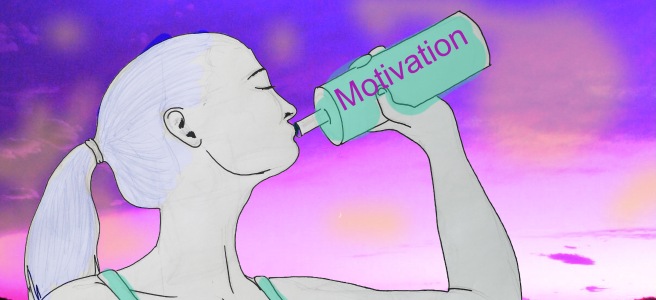Sometimes we started a new routine, but lose motivation over time. For me, it’s been taking cold showers, doing push ups in the morning, rewriting a paper for the thirteenth time. For the morning routine I just settled into a natural focus on eating breakfast. For work, I am happy that neuroscience provided me a few simple hacks to revive motivation.
Motivation is determined by your brain’s responses to the expected reward for an activity: the tingling feeling of leaving the cold, muscle tone, another publication on the resume. Neuroscience has revealed how the brain modifies responses to reward by a number of factors. Therefore all three hacks have to do with making the brain firing fiercely for reward.
1 Create fast reward
When we have to wait for a reward the brain responds less to it than when it would obtain it immediately. This process called “temporal discounting” occurs even on the timescale of minutes! It is unwise to focus on a big reward far in the future: a lean body, a published paper, the next career step. To keep yourself motivated it’s better to sprinkle small rewards across your routine. I even try to think of a little reward for every 25-minute task!

2 Alternate easy & difficult tasks
The brain reduces responses to rewards that are repeated and therefore expected. This process called “adaptation” is very important to keep us focused on the things that change. It also reduces the rewarding sensation of being competent at something – the main motivator for many activities. There is a simple hack to circumvent adaptation to your skill level. By alternating easy and difficult versions of a task you can change the level of success you experience. Thereby maintaining the value of success. Moreover, unexpected reward causes an additional response to a “reward prediction error,” creating even more motivation!
3 Reduce the proximity of alternative rewards
Alternatives reduce the attractiveness of a reward. A glass of water is more rewarding in the desert than in a bar. A date is more attractive when there aren’t hundreds of possible lovers meandering through the city. The brain reduces responses to reward by the “opportunity cost” of not being able to engage in activities that result in alternative reward.
There is a way out though! The brain also reduces responses to reward by the effort needed to obtain them. When you distance yourself from alternative reward, it becomes less distracting. Having to write in the evening, I for instance go to the library where I do find a cozy chair but have no phone or Internet connection.

Curious whether intrinsic motivation is better than these reward-based hacks? Read my previous blog: Is intrinsic motivation better?
